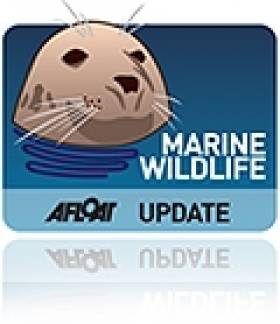Displaying items by tag: drowned
Two Bodies Recovered from Water Near Belfast
#NEWS UPDATE - The PSNI has confirmed that the body recovered from Belfast Lough yesterday morning is that of missing Stranraer man Carius McNicoll.
According to BBC News, the 24-year-old student was last seen on a ferry shortly before docking on 8 January.
His body was discovered near Holywood in Co Down. A post-mortem has confirmed that the cause of death was drowning.
In a separate incident yeserday, The Irish Times reports that a body recovered by divers in the River Lagan is believed to be that of a missing 20-year-old man.
John Murphy had reportedly entered the river at the Lagan Weir after an evening at the nearby Odyssey Arena last month. The body found has yet to be formally identified as Murphy.
In the wake of his loss, Murphy's family has called for an end to cheap drinks promotions.
Report into Death of Crab Fisherman Prompts Call for Review of Stability Standards
#MCIB - The Marine Casualty Investigation Board (MCIB) has recommended a ministerial review of stability standards for fishing vessels following its report into the death of a crab fisherman off Co Cork in January last year.
Gerry Hegarty drowned after a wave struck the crab boat Carraig An Iasc, which was fully loaded with crab pots at the time, causing it to capsize and sending its two-man crew into the water.
Hegarty, who was not wearing a personal flotation device (PFD) or other buoyancy aid, got into difficulty while attempting to swim ashore with his crewmate and skipper James Fitzgerald, who subsequently raised the alarm.
Lifeboats from Ballycotton and Crosshaven, as well as Irish Coast Guard helicopter Rescue 117, were tasked to the incident. Divers from Naval Service vessel LE Emer located the sunken crab boat but no body was found.
A coastguard search of the area continued over a number of days without success. Hegarty's body was eventually recovered on 17 February 2011 at Ringabella Strand in Co Cork.
The MCIB found it probable that the Carraig An Iasc encountered wind or wave action or a combination of both that caused the vessel to heel to an angle beyond which it was able to recover from its loaded condition. The vessel's Code of Practice Declaration of Compliance was valid until 15 July 2013.
The board noted that there have been "a number of incidents caused by overloading boats thus effecting stability", and recommended that the Minister for Transport reviews and revises the stability standards in the current Code of Practice to improve these standards.
It was also recommended that a safety notice be issued to all skippers and owners in the fishing fleet reminding them of their legal responsibility to ensure that all their crew wear PFDs or lifejackets while on deck.
The full report is available to download as a PDF from the MCIB website HERE.
- Crosshaven
- Cork
- Safety
- Fishing
- Ballycotton
- Lifejacket
- Lifeboat
- Marine Casualty Investigation Board
- Coastguard
- Irish Coast Guard
- Skipper
- naval service
- helicopter
- MCIB
- Rescue 117
- personal flotation device
- Minister for Transport
- LE Emer
- standards
- drowned
- crab fishing
- Carraig An Iasc
- Gerry Hegarty
- James Fitzgerald
- PFD
- Ringabella Strand
- Code of Practice
- stability
- overloading
Dolphins Watched Over Drowned Irishman
A pod of dolphins attempted to save the life of an Irishman who drowned in Australia last month after only six weeks in the country.
Irish Central reports that Shaun McBride from Donegal was dismantling scaffolding at a wharf in Dampier, Western Australia, when the structure collapsed into the water.
Police divers reportedly found his body surrounded by a pod of dolphins. One of them was using its nose to push the body to the surface.
Shaun's mother Sylvia told mourners at his funeral in Burtonport that she had been comforted at learning the dolphin's actions in keeping vigil on her son.
Irish Central has more on the story HERE.


























































